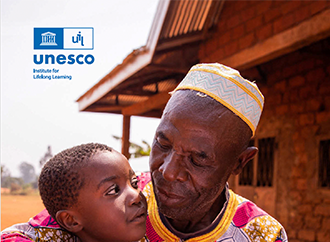
Understanding the Significance of Intergenerational Literacy and Learning
The promotion of literacy across generations is a crucial component of building resilient and inclusive communities. At the forefront of this dialogue is the recent UNESCO book launch webinar, which emphasized the importance of intergenerational literacy and learning from a global perspective. The University of Malta actively participated in this event, with Professor Charles L. Mifsud, a prominent scholar from the Faculty of Education and Director of the Centre for Literacy, serving as a main speaker.
The Role of the University of Malta in Advancing Literacy Initiatives
Located at the heart of Malta, the University of Malta continues to lead in research and development in the field of literacy. Through collaborative projects and active participation in international forums like UNESCO’s initiatives, the university seeks to address educational disparities and promote lifelong learning strategies tailored to diverse communities. Professor Mifsud’s involvement underscores the university’s commitment to fostering inclusive education policies, especially for marginalized groups.
The UNESCO Book: Family and Intergenerational Literacy and Learning
The recently launched publication, developed in partnership with the Goodling Institute for Research in Family Literacy at Penn State College of Education, offers comprehensive insights into family and intergenerational literacy. It shifts the focus from traditionally high-income, Anglophone countries to include perspectives from low- and middle-income, non-Anglophone nations. This emphasis highlights the importance of recognizing the cultural and contextual specificities that influence literacy practices worldwide.
Key Themes of the UNESCO Book Launch Webinar
During the webinar, Professor Mifsud discussed how family and intergenerational learning programs benefit both children and adults, improving literacy, numeracy, self-esteem, and social connections. The publication underscores strategies employed by marginalized communities to nurture literacy informally, often through oral traditions and culturally embedded educational practices.
This approach signifies an important shift in literacy development paradigms—acknowledging indigenous knowledge systems and informal learning as vital components of lifelong education. It encourages policymakers, educators, and community leaders to tailor interventions that respect cultural contexts and empower disadvantaged groups.
Implications for Malta and the Mediterranean Region
As a Mediterranean island with a rich cultural heritage, Malta benefits from insights gained through such international dialogues. The University of Malta aims to adapt these best practices into regional policies that support intergenerational learning, especially in communities facing socioeconomic challenges. Initiatives fostering digital literacy and oral communication are vital in this context, ensuring that all generations stay connected and continue learning effectively.
How Can Educational Institutions Support Intergenerational Literacy?
Universities like the University of Malta can contribute through research, community engagement, and curriculum development that emphasizes inclusive education methods. Practical steps include:
- Designing adult learning programs that involve multiple generations.
- Promoting digital literacy among older populations to bridge generational gaps.
- Collaborating with local communities to incorporate indigenous literacy practices.
- Supporting policies that recognize informal and oral literacies as valid learning modalities.
Furthermore, fostering awareness about the importance of intergenerational literacy can inspire broader societal change toward valuing diverse literacy practices and cultural knowledge.
Building on International Insights for Local Impact
The UNESCO Book Launch webinar, with the participation of Professor Charles Mifsud, underscores the ongoing global effort to promote inclusive, intergenerational literacy. The University of Malta remains committed to integrating these international perspectives into local policies and community initiatives, fostering a culture of lifelong learning and educational equity. As societies evolve, supporting literacy across all ages and backgrounds becomes increasingly vital for creating a cohesive and resilient Malta.
Interested in studying at the University of Malta? Fill out the form to get personalized support from a Studygram expert counselor. We’ll guide you through program selection, admission requirements, and the application process, making it easier for you to take the next step toward your academic goals in Malta.

